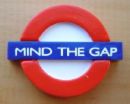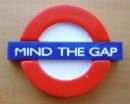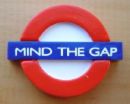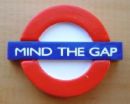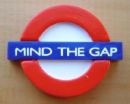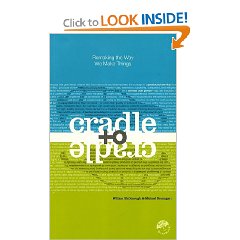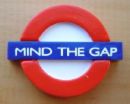Warning. This is a plastic book (recycled something other than paper, waterproof). A pen smears, so plan to use a pencil if you are a normal person who reads serious books with an annotating hand. It is a fast light read, and in some ways I think the authors do not do their pioneering work full justice.
It was very helpful to me to have first read Paul Hawken's books (with his co-authors–see my reviews for a fast overview), namely Seven Tomorrows, The Ecology of Commerce, and Natural Capitalism. With that background, and of course having read Limits to Growth and related works in the 1970's, I found these authors to be impressive, coherent, and on target. HOWEVER, someone without that broader background could possibly find this book facile and unpersuasive if not somewhat opaque, which would be unfair to the authors. They are brilliant and merit our attention.
The book opens with a review of the industrial era which is characterized by cradle to grave design, meaning all things are designed for eventual disposal, generally at the taxpayers' expense and without regard to the natural capital cost of what was produced. This era, as the authors describe it, has been characterized by one size fits all planning (which wastes enormously on diverse points along the spectrum of actual need); by design for worst case conditions (more waste when they do not materialize 80% of the time); by the application of brute force to the land (with all that implies in energy consumption); by a monoculture concept (lawns with pesticide instead of natural gardens as eco-systems), and relatively crude products.
The authors' bottom lines here are that being less bad is not good enough, because in a closed system you can only go so far in relegating stuff to a grave, eventually the whole Earth will be one massive grave.
The four R's, and they give credit throughout the book to others, are Reduce, Reuse, Recycle, and Regulate.
They are very specific in stating that downcycling is not true recycling, and most often leads to a cumulative increase of toxins with each reuse.
They are conscious of and discuss conflicting views of growth, but like Paul Hawken, they are clearly pro-business and articulate in pointing out that if Henry Ford can see the value of going green, then all businesses should take this general message seriously: sustainable profit is ONLY possible if you go green.
They distinguish between biological recycling and technical recycling. Although many more examples could have been provided of both processes being successfully implemented, they go far enough to be understood on this point.
“Clean” water is not so clean after all. Just as fish are absorbing and passing on to human very high levels of mercury, so also is even the cleanest of water being found to be contaminated in alarming ways.
The authors conclude that it is possible to design cradle to cradle products if one commits to converting the products into leased services, with the “producer” being responsible for taking any given product back for proper and full recycling. This gives the producer every incentive for designing products that can be easily broken down, re-used, and purified of all toxins from cradle to cradle.
The localizing of processes, but especially of waste treatment, is another theme that runs strongly here. Not only can neighborhoods create aquatic biological localized waste treatment processes that are beautiful and natural, but since the water they drink comes out the other end, they are individually incentivized to avoid dropping toxins into the natural waste system.
The authors have a triangle comprised of Energy, Equity, and Economy, and without getting into the public philosophy (see my review of the book by that title), suggest that the three must go forward together.
They point out that feedback is important, that information improvements can contribute a great deal to our making progress along the lines they suggest, with business being the greatest beneficiary.
The book concludes with five steps and five guiding principles.
The five steps are:
1) Get rid of known toxins and culprits in every product and service
2) Follow informed personal preferences
3) Do detailed analysis of the positive, neutral, and negative components of any product or process
4) Design around the positive
5) Reinvent constantly–exceed the first fix again and again
The five guiding principles are:
1) Signal intention
2) Restore, restore, restore
3) Innovate and keep innovating
4) Understand and prepare for the learning curve of the client
5) Exert inter-generational (sustainable) responsibility
This is not a good book to read in isolation. It earned four stars because of the authors' proven accomplishments, but the book I wish they had written would have had much more substance of successful natural designs from the past, and proposed new designs for neighborhoods, townships, rural areas, and cities as well as factories. It would be quite interesting for these two authors to create a book on “Designing Forever: The Way It Needs to Be.” If they write it, I will buy it and review it here at Amazon.
 Scary, Practical, A “Best in Class” Book,
Scary, Practical, A “Best in Class” Book,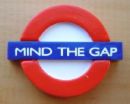 Click Here to Vote on Review at Amazon,
Click Here to Vote on Review at Amazon,

